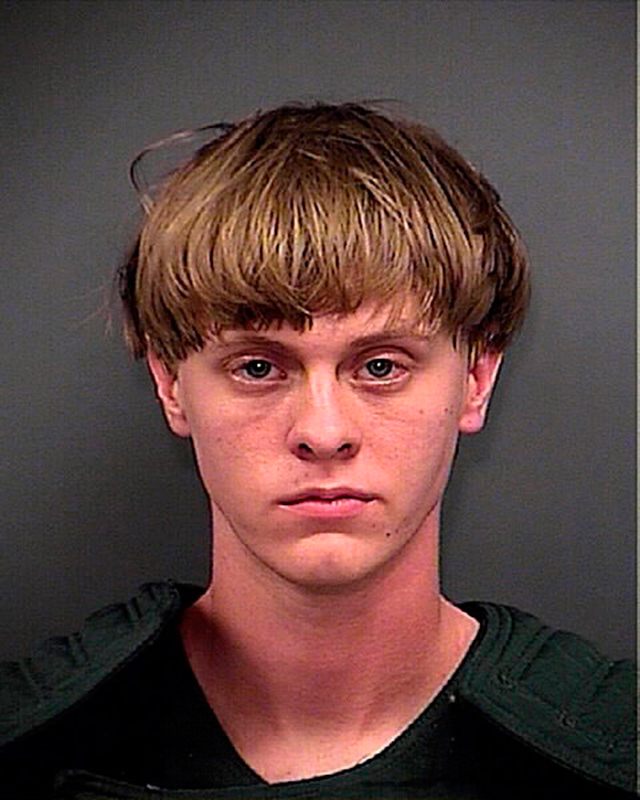By Cynthia Roldan and John Monk
Tribune News Service
CHARLESTON, S.C. — Dylann Roof was sentenced to death Tuesday for killing nine African-Americans at Charleston’s Emanuel AME Church in June 2015, which a federal jury deemed a hate crime.
The judge announced the jury’s decision just before 5 p.m. Tuesday. Roof, who is white, showed no emotion. He did ask for new lawyers to help him file a motion for a retrial. Judge Richard Gergel, however, told him he would need to file a motion himself if that was what he wanted.
Roof’s family, who are from the Columbia area, immediately sent out a statement:
“We are Dylann Roof’s family. We will always love Dylann. We will struggle as long as we live to understand why he committed this horrible attack, which caused so much pain to so many good people. We wish to express the grief we feel for the victims of his crimes, and our sympathy to the many families he has hurt. We continue to pray for the Emanuel AME families and the Charleston community.”
Deliberations started around 1:35 p.m. Tuesday after Roof told jurors they had been misled by prosecutors about his alleged deep hatred of African-Americans.
Roof represented himself in the penalty phase of his hate crimes trial, giving a closing argument that lasted about five minutes. He argued that he has never said he hates African-Americans, but that “I don’t like what black people do.”
“And anyone, including the prosecution, that thinks that I’m filled with hate has no idea what real hate is,” Roof said. “They don’t know anything about hate. They don’t know what real hatred looks like. They think they do. But they don’t, really.”
Roof went on to tell the jury that he knew he had the right to ask them to give him a life sentence. But he said, “I’m not sure what good that would do.”
That case was made by lead prosecuting attorney Jay Richardson during his closing argument, which lasted two hours, before Roof gave his. Richardson went through every horrific detail revealed during the last month of the federal hate crimes trial of Roof.
Richardson noted Roof’s extensive planning, his continued lack of remorse and the damage he caused to the family members of the victims he killed.
“We learned about the defendant’s cold and calculated choices that caused those losses to happen,” Richardson said. “His racist ideology the acquiring of that ideology, that’s part of his preparation that’s part of what led him to walk in that door at Mother Emanuel on June 17 (2015).”
Richardson also noted how Roof spent time on racist websites, but also chose to create his own to continue spreading “his message of hate; his message of revenge; his message of agitation.”
“He spent years acquiring this deep hatred,” Richardson said. “He ‘had to do it.’ Those are the words of an extraordinary racist.”
After highlighting what the loss of every victim meant to their families, Richardson went on to enumerate reasons why Roof’s case qualified for the death penalty. All the while, Roof, 22, sat motionless as Richardson listed the reasons why Roof should be put to death.
Richardson got a second chance to argue why Roof needs to be sentenced to death, during his counter-argument to Roof’s closing statement.
Richardson called Roof “unrepentant” and said his closing argument highlighted how Roof’s racism is not passionate or angry, but cold and calculated.
“His response is to double down,” said Richardson in response to Roof’s closing argument. “It’s to continue to tell you the same thing. He wants you to believe that you have been misled. That indeed he was justified. That he was justified in committing a modern day lynching.
“Render the full measure of justice for this defendant,” Richardson added. “Sentence this defendant to death.”
In his closing argument, Roof also said that the jury had heard in his taped confession to the FBI that Roof felt like he “had to do it.” In court on Tuesday, Roof said “that’s obviously not true.”
“I didn’t have to do it,” Roof said. “But what I meant when I said that was that I felt that I had to do it. And I still feel that I had to do it.”


